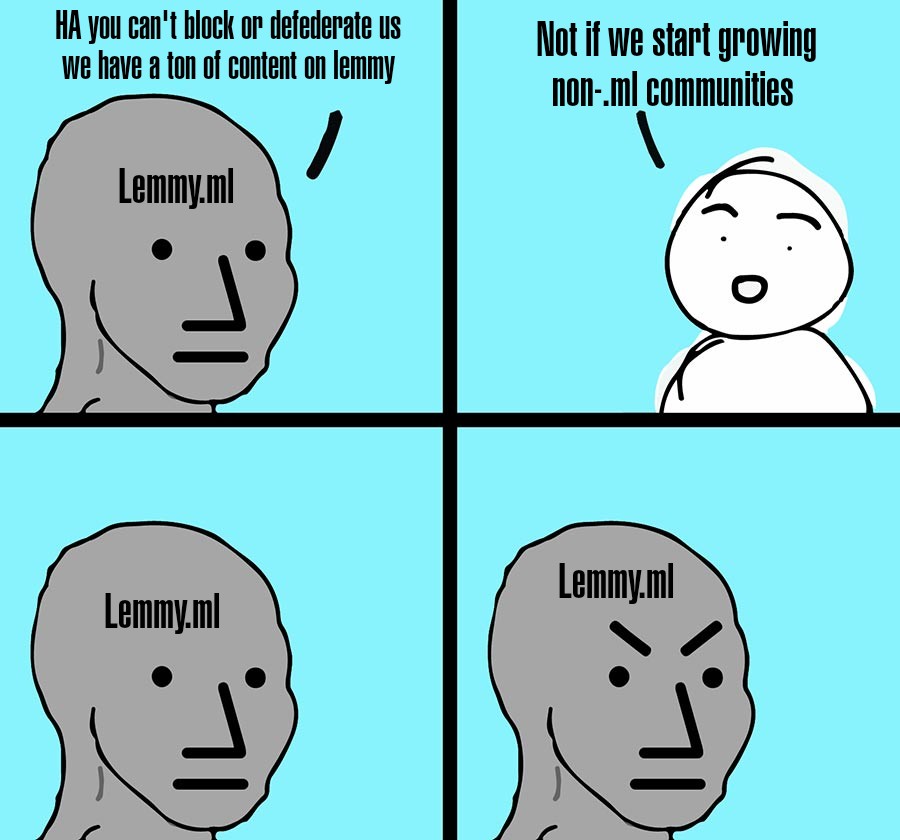this post was submitted on 23 Nov 2024
660 points (85.5% liked)
memes
10406 readers
1807 users here now
Community rules
1. Be civil
No trolling, bigotry or other insulting / annoying behaviour
2. No politics
This is non-politics community. For political memes please go to [email protected]
3. No recent reposts
Check for reposts when posting a meme, you can only repost after 1 month
4. No bots
No bots without the express approval of the mods or the admins
5. No Spam/Ads
No advertisements or spam. This is an instance rule and the only way to live.
Sister communities
- [email protected] : Star Trek memes, chat and shitposts
- [email protected] : Lemmy Shitposts, anything and everything goes.
- [email protected] : Linux themed memes
- [email protected] : for those who love comic stories.
founded 1 year ago
MODERATORS
you are viewing a single comment's thread
view the rest of the comments
view the rest of the comments

I'm all for anarcho-communism. I studied it in college. I don't know what the execution looks like though in practice but I find it appealing.
🫶 In practice, every locality people are being the rescue workers to their neighbors Whenever and whereever Corporate & State institutions inevitably give way to their own weight and parasitism, the darker the times, the brighter folks shine. It isnt always intentional solidarity (rural townfolk often embody the practices as a matter of survival and culture, diverse as any peoples), and I'm always leery of calling things "natural"...but I do believe people have a tendency to want to help one another.
Local Mutual Aid organizations, and Encouraging anti-authoritarian parenting methods, are the two things we can do to drastically reduce violence in our society
https://youtu.be/D7cKOaBdFWo?t=2139 Heather Cox Richardson, professor of American history On The Weekly Show with Jon Stewart on Trump’s Win and What’s Next
https://www.reddit.com/r/Anarchism/comments/jp3q4p/comment/gbesw1p/